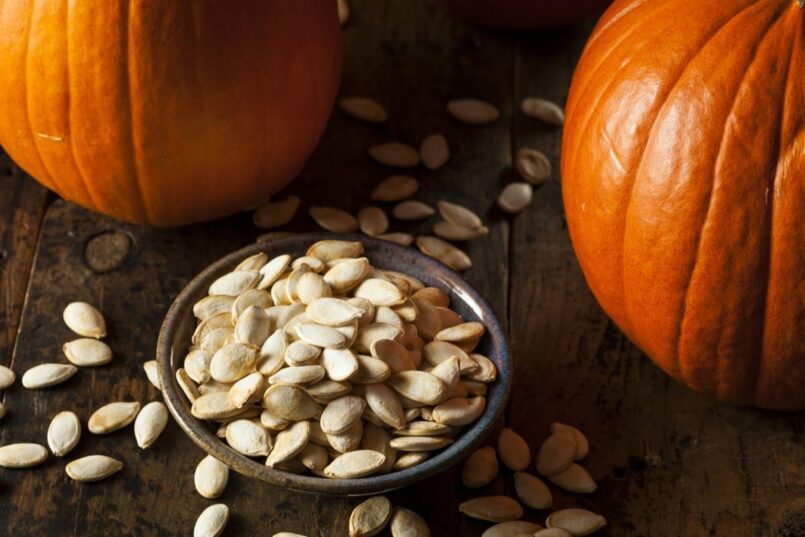Pumpkin, a quintessential fall favorite, is not only a symbol of the season but also a highly nutritious and versatile ingredient. While often associated with pies and jack-o’-lanterns, pumpkin offers a wealth of health benefits and can be incorporated into a wide range of dishes, both sweet and savory. In this comprehensive guide, we’ll explore the nutritional profile of pumpkin, its potential health benefits, and creative ways to enjoy it in your diet.
Nutritional Profile of Pumpkin
Pumpkin is a nutrient-dense food rich in essential vitamins, minerals, and antioxidants. Here’s a breakdown of its nutritional composition:
Vitamins:
Pumpkin is an excellent source of vitamin A, providing over 200% of the recommended daily intake per serving. Vitamin A is essential for vision health, immune function, and skin health. Additionally, pumpkin contains significant amounts of vitamin C, an antioxidant that supports immune function and collagen production.
Minerals:
Pumpkin is rich in minerals such as potassium, magnesium, and manganese. Potassium is crucial for heart health and muscle function, while magnesium plays a role in energy metabolism and bone health. Manganese acts as a cofactor for various enzymes involved in metabolism and antioxidant defense.
Fiber:
Pumpkin is a good source of dietary fiber, including both soluble and insoluble fibers. Fiber is essential for digestive health, promoting regular bowel movements, and helping maintain healthy blood sugar and cholesterol levels.
Antioxidants:
Pumpkin contains a variety of antioxidants, including beta-carotene, lutein, and zeaxanthin. These compounds help neutralize free radicals, reduce inflammation, and protect against chronic diseases such as heart disease and cancer.
Health Benefits of Pumpkin
Supports Eye Health:
The high beta-carotene content in pumpkin is converted into vitamin A in the body, which is essential for maintaining healthy vision. Consuming foods rich in beta-carotene may help reduce the risk of age-related macular degeneration and cataracts.
Boosts Immune Function:
Pumpkin is rich in vitamin C, a potent antioxidant that supports the immune system by promoting the production of white blood cells and enhancing their function. Including pumpkin in your diet can help strengthen your body’s defenses against infections and illnesses.
Promotes Heart Health:
The potassium and fiber content in pumpkin may help lower blood pressure and reduce the risk of heart disease. Potassium helps regulate blood pressure by counteracting the effects of sodium, while fiber helps lower cholesterol levels and improve overall heart health.
Aids in Weight Management:
Pumpkin is low in calories and rich in fiber, making it a satisfying and nutrient-dense food choice for weight management. The fiber content in pumpkin helps promote feelings of fullness and satiety, reducing overall calorie intake and supporting weight loss efforts.
Supports Digestive Health:
The fiber content in pumpkin promotes digestive regularity and helps prevent constipation. Additionally, the high water content of pumpkin contributes to hydration and supports optimal digestive function.
How to Incorporate Pumpkin into Your Diet
Roasted Pumpkin:
Simply chop pumpkin into cubes, toss with olive oil, salt, and your favorite herbs or spices, and roast in the oven until tender. Roasted pumpkin can be enjoyed as a side dish, added to salads, or used as a topping for soups and stews.
Pumpkin Soup:
Blend cooked pumpkin with vegetable broth, onions, garlic, and spices to create a creamy and comforting pumpkin soup. Garnish with a dollop of Greek yogurt or coconut cream for added creaminess and flavor.
Pumpkin Smoothie:
Blend cooked pumpkin with banana, almond milk, cinnamon, and nutmeg for a delicious and nutritious pumpkin smoothie. Add protein powder or Greek yogurt for an extra protein boost.
Pumpkin Oatmeal:
Stir cooked pumpkin puree into your morning oatmeal for a seasonal twist on a classic breakfast favorite. Top with chopped nuts, seeds, and a drizzle of maple syrup for added flavor and texture.
Pumpkin Bread or Muffins:
Replace some of the flour in your favorite bread or muffin recipe with pumpkin puree for a moist and flavorful baked treat. Add spices like cinnamon, nutmeg, and ginger for a delicious autumnal flavor.
Pumpkin Seeds:
Roast pumpkin seeds with olive oil and your favorite seasonings for a crunchy and nutritious snack. Pumpkin seeds are rich in protein, healthy fats, and essential minerals like zinc and magnesium.
Pumpkin Curry:
Add cooked pumpkin cubes to your favorite curry recipe for a hearty and flavorful vegetarian dish. Combine with coconut milk, curry spices, and vegetables for a satisfying meal that’s perfect for chilly nights.
Conclusion
Pumpkin is not only a delicious and versatile ingredient but also a nutritional powerhouse packed with vitamins, minerals, fiber, and antioxidants. Incorporating pumpkin into your diet can offer a variety of health benefits, including support for eye health, immune function, heart health, weight management, and digestive health. From savory soups and curries to sweet smoothies and baked treats, there are countless ways to enjoy pumpkin and reap its many nutritional rewards. So embrace the flavors of fall and make pumpkin a staple in your seasonal menu for a healthy and delicious dining experience.
- Chill Vibes in a Capsule: My Experience with JustCBD UK’s Full Spectrum CBD Gel Capsules - August 9, 2024
- Flavorful Escapades: Melo’s THC Beverage Adventure! - May 18, 2024
- Pumpkin: Nutrition, Benefits, and How to Eat It - March 19, 2024


